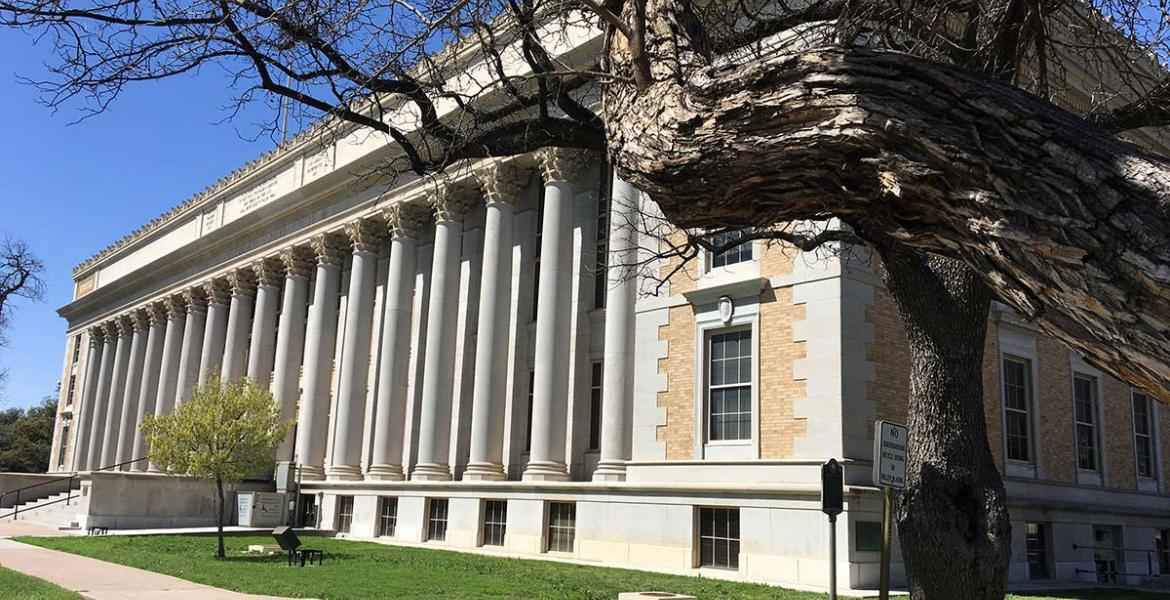OPINION — That’s the theme of a Texas Municipal League campaign the City Council endorsed today, voicing concern about state government overreach into issues and decisions that are best determined at the local level.
The message is straightforward and sensible: Citizens should have a voice in matters that impact us, our neighbors and our community. Texas is far too large and too diverse for politicians gathered in Austin to decree one-size-fits-all solutions for Frisco and Laredo and San Angelo.
We confronted just such an issue two years: short-term rentals. You may recall this debate pitted the view that San Angeloans should be able to rent their homes for brief periods while they are away versus the argument that such rentals diminish the quality of life in residential neighborhoods.
About the same time Austin was also wrestling with concerns about short-term rentals. In each instance, the respective City Councils forged compromises that didn’t make everyone happy, but seemed to have served their communities well.
So, no one could reasonably argue the issue of short-term rentals demanded a state solution. And yet, into that fray the state is wading.
The state attorney general has sought to have Austin’s short-term rental ordinance overturned in court. A Texas legislator last year tried to pass a state law regulating short-term rentals; another such effort is expected once lawmakers convene in January.
During the upcoming legislative session, other pre-emption laws are expected regarding plastic bags, payday lending, tree ordinances … and, believe it or not, chickens. (The Texas Senate in 2017 passed a bill that would require cities to allow homeowners to allow up to six chickens in a backyard.)
The most worrisome proposition is artificially capping the property tax revenue a city can generate. Proposals have ranged from 2.5 percent to 6 percent of what was collected the prior year.
On the surface, that’s an appealing idea. But it would surely spark unintended consequences. For example, cities could be forced to end property tax abatements as an incentive to lure private investment and jobs.
Even more vitally, revenue caps would hamper public safety efforts.
More than 52 percent of the City of San Angelo’s general fund budget is dedicated to our police and fire departments; the property tax accounts for 46 percent of the general fund’s revenue. In essence, every penny of property tax collected is spent providing and supporting police officers and firefighters.
Over the past two years, the City has added 10 officers and 16 firefighters. Those additions will translate into quicker response times and greater protection. Had San Angelo been subject to an artificial revenue cap, adding first-responders might not have been possible.
This effort to reduce the local property tax burden is, frankly, misguided. Texans pay far more in school taxes than city taxes. That’s because state lawmakers have gradually shifted the burden of funding schools from the state to the local level. If the Legislature is earnest in reducing the local tax burden, it will reverse the trend and fund schools to a greater extent.
Another troublesome proposal calls for mandatory elections to issue certificates of obligation, which are a financing tool.
San Angelo is using CO’s to fund $80 million in street projects … without raising the property tax rate. Keeping in mind that all of our property taxes are essentially devoted to public safety and the state wishes to cap revenue, imagine how we would otherwise fund those street improvement efforts. (We couldn’t.)
In short, the most important decisions we make as a community involve the sorts and levels of services we want and how much we are willing to pay for them. That decision can best be made here in San Angelo, not in Austin.
The City is fortunate to have a collaborative working relationship with state Rep. Drew Darby, whose efforts at the state capitol have benefited our community immeasurably. Unlike some of his colleagues, Rep. Darby has never sought to handcuff locally elected officials. Perhaps that is because he is a former San Angelo City Council member and better understands the plight of local government.
Others in state government have expressed interest in pre-empting local regulations, calling state oversight a superior approach. We disagree.
Like all Texans, San Angeloans don’t want to be told we must conform to one way of thinking or one way of living – regardless of whether that comes from Washington or Austin. Neither do we care whether our neighbors in Frisco and Laredo make decisions that differ from ours.
As our friends at the Texas Municipal League point out, whether it’s burnt orange or maroon, sweetened or unsweetened, or red salsa or green … there’s no one way of being Texan. That said, there is one thing we can all agree upon: We want to continue making our own decisions about our hometowns. And that’s especially true here in San Angelo.
Subscribe to the LIVE! Daily
Required






Post a comment to this article here: